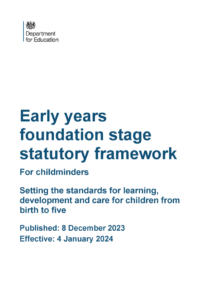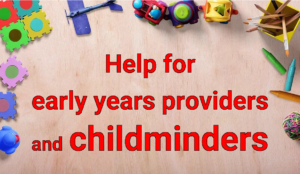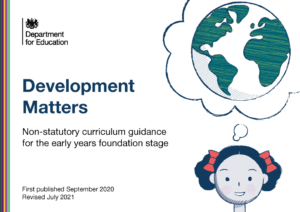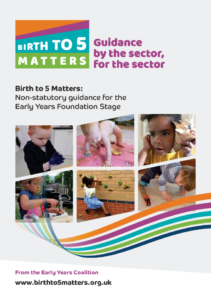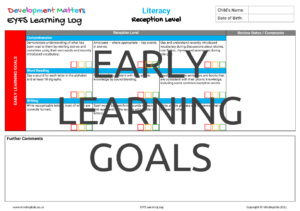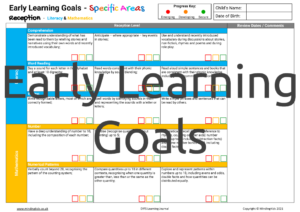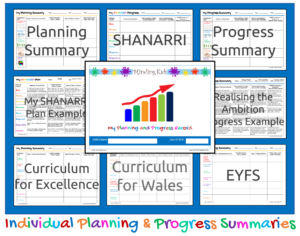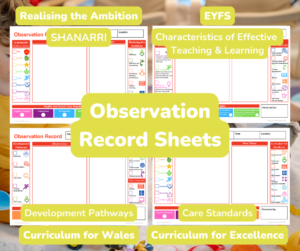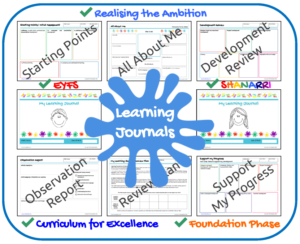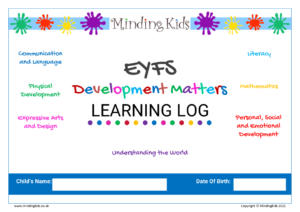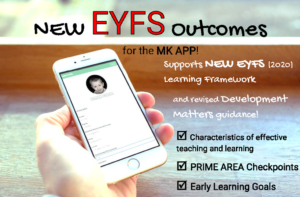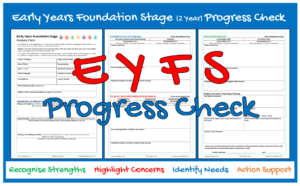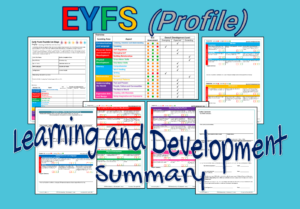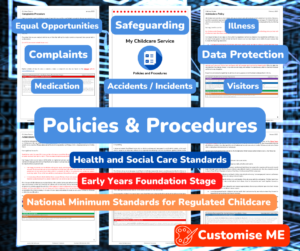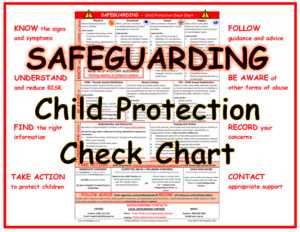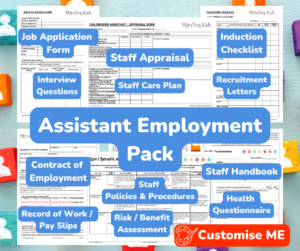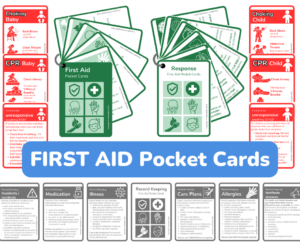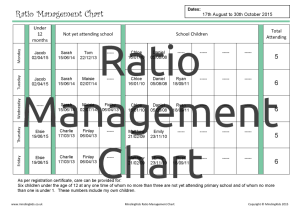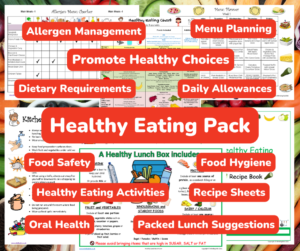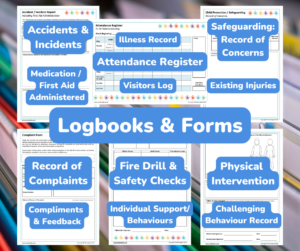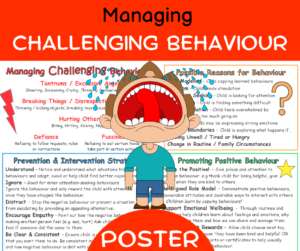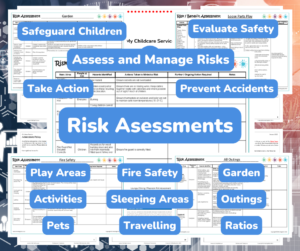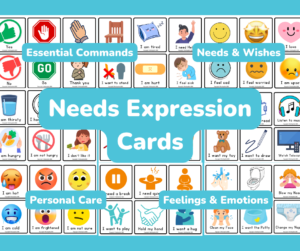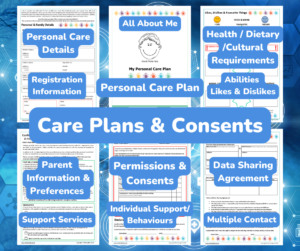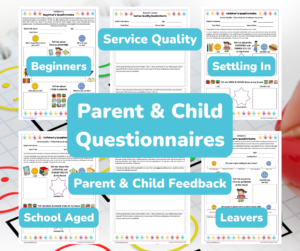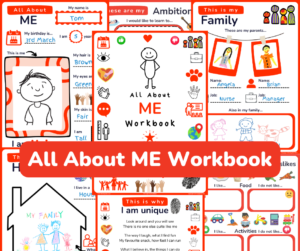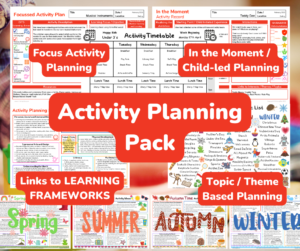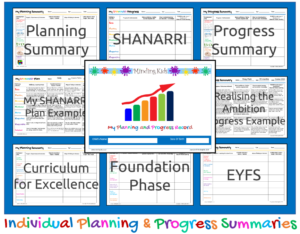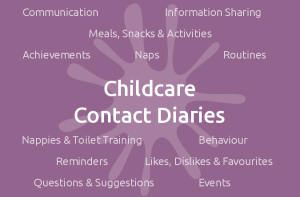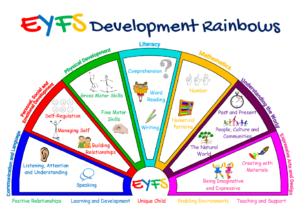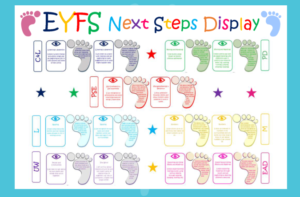EYFS – Meeting Requirements
All schools and registered providers caring for babies and young children in England must meet the requirements of the Early years foundation stage (EYFS) statutory framework.
In this guide, we will go over the key principles, what it is asking of childcare providers and also link to resources that will help you to meet requirements in YOUR setting.
What is the EYFS?
The Early years foundation stage (EYFS) statutory framework are the standards that school and childcare providers in England must meet for the learning, development and care of children from birth to age 5. It’s purpose is to ensure that children learn and develop well and are kept safe and healthy.
As a registered provider caring for babies and young children in England, you are obliged to meet the requirements of the Early Years Foundation Stage.
In this guide, we will go over what it is asking of childcare providers and also link to resources that will help you to meet requirements in YOUR setting.
Let’s work through each section and focus on the key principles:
Section 1 – The learning and development requirements
The EYFS Framework requires us to use the four overarching principles when shaping our practice. We must consider each child as a Unique Child whilst nuturing positive relationships in an enabling environment that promotes learning and development.
Rather than prescribing a particular teaching approach, the framework encourages practitioners to consider the individual needs, interests and development stage of each child in their care to plan challenging and enjoyable experiences that will support learning in all areas.
Areas of Learning
The seven areas of learning are known collectively as the ‘Educational Programmes’ or may also be referred to as the ‘early years curriculum.’
Early Learning Goals
The level of development children should be expected to have attained by the end of the EYFS is defined by the early learning goals (ELGs) however the guidance states that they should not be used as a curriculum and that their purpose is to support teachers to make a best-fit judgement regarding children’s readiness for year 1.
Pre-reception providers are not required to use the early learning goals.
Areas of Learning |
Early Learning Goals |
|---|---|
| Communication and Language | Listening, Attention, and Understanding and Speaking |
| Personal, Social and Emotional Development | Self-Regulation, Managing Self and Building Relationships |
| Physical Development | Gross Motor Skills and Fine Motor Skills |
| Literacy | Comprehension, Word Reading and Writing |
| Mathematics | Number and Numerical Patterns |
| Understanding the World | Past and Present, People, Culture and Communities and The Natural World |
| Expressive Arts and Design | Creating with Materials and Being Imaginative and Expressive |
Help for early years providers and childminders has been provided along with the revised Development Matters non-statutory guidance, to assist providers in developing their curriculum and provide further direction and examples of how to support children. Providers may also wish to refer to the Birth to 5 Matters non-statutory guidance.
Find a summary of the Areas of Learning descriptions and further ideas in our EYFS – Planning YOUR Curriculum HOT TOPIC.
Section 2 – Assessment
Providers must regularly observe each child to understand how they are progressing and identify any areas where progress is less than expected. Contact with relevant professionals should be made to address any significant concerns.
Practitioners should use their knowledge of the child alongside their professional judgement when assessing whether a child is at the expected level of development.
Be prepared to demonstrate on inspection how well you know each child, their development in relation to the EYFS and how you are supporting their individual progress. Consider interests, characteristics of effective learning and teaching, supporting schemas etc.
To ensure what we are doing is working, we need to measure the effectiveness of our strategies and plan how we are going to support each child with their next steps. Remember:
- Intent – What you want a child to learn
- Implementation – How you are going to help the child achieve this
- Impact – Evaluate learning and achievements so as you are ready to plan the next steps
Parents and carers must be kept up to date with their child’s progress and practitioners must address any learning and development needs in partnership with parents, and any relevant professionals where required.
Whilst there is no requirement for physical evidence of ongoing assessment, if keeping learning folders and tracking documents helps us to, communicate and share learning with parents, and refresh our memories prior to inspection then keeping development records is not necessarily a bad thing.
❓Think about the development records you keep and ask yourself what is beneficial to you, families and most importantly the children? What methods of communication and sharing information with parents are working best and allow you to enhance experiences and what are you doing that you feel takes too much time away from providing hands on quality care? Perhaps shifting to a digital solution will allow for greater efficiency, more flexibility and better organisation?
Whatever methods you use, make sure they work for YOU!
👉CLICK HERE for a FREE trial of the MindingKids App
✔ Save Time ✔ Meet Requirements ✔ Improve Parent Communication
Statutory Assessment
Progress check at age two
The Progress check at age two must be completed by practitioners when a child is aged between two and three to provide parents and/or carers with a short written summary (Progress Check) of their child’s development in the PRIME areas of learning.
Reception Baseline Assessment
A reception baseline assessment (RBA) must be taken in the first six weeks in which a child starts reception and therefore will normally be carried out in school.
Early Years Foundation Stage Profile (EYFSP)
The EYFS Profile must be completed for each child in the final term of the year in which the child reaches age five, and no later than 30 June in that term. The purpose of the profile is to provide a well-rounded picture of a child’s knowledge, understanding and abilities, their attainment against expected levels, and their readiness for year 1.
Section 3 – The safeguarding and welfare
requirements
Childcare should be provided in a safe, secure and welcoming, environment where children can feel comfortable and at ease.
Providers must be adequately trained and have procedures in place to ensure children’s individual needs are met and they are safe from harm.
Childminders are not required to have written policies however, they must be able to explain their policies and procedures to parents, carers, and others (for example Ofsted inspectors or the childminder agency with which they are registered) and ensure any assistants follow them.
Child Protection
All childcare providers must undergo child protection training and refresh this training every two years.
All childcare settings must have and implement a policy and procedures, to safeguard children.
Suitable People / Staff and Assistants
Disclosure and Barring Service (DBS) checks must be carried out for all providers, staff or assistants and any other individuals aged 16 or over who lives or works on the premises.
If you employ staff, an assistant or take on work placement students or volunteers, you must have strict recruitment procedures in place to ensure suitability for working with children.
Fair and proper recruitment procedures must be followed and an induction process completed to ensure all staff are made aware of the setting’s policies and procedures and clearly understand their roles and responsibilities.
First Aid
Childminders, and any assistants who might be in sole charge of the children for any period of time, must hold a full current paediatric first aid certificate. First aid training must be renewed every three years and be relevant for workers caring for young children and where relevant, babies.
Ratios
In order to meet the needs of all children and ensure their safety, adult:child ratio and qualification requirements must not be exceeded.
At any one time, childminders may care for a maximum of six children under the age of eight. Of these six children, a maximum of three may be young children, and
there should only be one child under the age of one. A child is a young child up until 1st September following his or her fifth birthday.
Occasionally special circumstances may arise where an adjustment to your ratios may be beneficial to the children and families attending your service. In all circumstances, the total number of children under the age of eight being cared for must not exceed six per adult and you must be able to demonstrate to parents / carers and Ofsted inspectors that the individual needs of all the children are being met.
Health
All providers must promote the good health of all children, including nutrition, oral health and have procedures in place to prevent the spread of illness and infection.
Adequate systems must be in place to obtain information about a child’s needs including any specific medical or health requirements which should be regularly reviewed and kept up to date.
Providers must have and implement a policy, and procedures, for administering medicines and obtain written consent from the child’s parent / carer before any medication (prescription or non-prescription) can be administered.
Food and Drink
Providers must encourage children and families to be involved and learn about healthy choices.
Where children are provided with meals, snacks and drinks, they must be healthy, balanced and nutritious and there must be suitable facilities for the hygienic preparation of food.
Dietary information must be obtained for every child including details of any special dietary / health requirements, preferences, food allergies and / or intolerances.
Accident or Injury
A first aid box must be accessible at all times with appropriate content for use with children.
Reports must be completed for any accident or incident that has occurred and include details of the incident, any first aid treatment given and action taken to prevent such an incident occurring again.
Managing Children’s Behaviour
It is a requirement of the Prevent Duty guidance to ‘promote fundamental British Values’. Providers must be able to demonstrate how positive behaviour is encouraged in an age-appropriate way through everyday routines and activities.
Should an incident occur where a child requires to be physically restrained in order to ensure their safety and that of others, this must be recorded and parents informed.
Safety & Risk Assessment
Action must be taken to minimise risks and comply with the requirements of health and safety legislation (including fire safety and hygiene requirements).
Health and safety procedures should consider the use and storage of alcohol, medicines, harmful substances and sharp tools or instruments and an emergency evacuation procedure must be in place.
Reasonable steps to ensure children, families, and staff are not exposed to risks. Every area used for childcare purposes including any outdoor and garden areas should be risk assessed regularly and checked on a regular basis with reasonable actions taken to remove or minimise risk.
Risks or hazards which may arise for the children when on outings must also be considered as well as safety procedures for travelling.
Special Educational Needs
Arrangements must be in place to support children with SEN or disabilities. Providers should work with families and with the support of their local Special Education Needs Co-ordinator to arrange
access to specialist equipment or resources wherever possible to enhance a child’s experience.
Information and Records
Information records for all children must be kept as required by the EYFS and in line with the General Data Protection Regulation. All providers must register are obliged by law to register with the Information Commissioners Office as a data controller and must have adequate procedures in place for obtaining, securely storing and appropriately destroying / deleting data at the end of the required retention period.
Parents and carers should be consulted on their preferred methods of communication, taking into consideration data security and respect confidentiality at all times.
Complaints
A written procedure for handling complaints must be in place. Any complaints about your service must be recorded and include the date of complaint, matter of the complaint, action taken, outcome and any correspondence to all parties involved.
Parents / carers must be provided with details of how to contact Ofsted should they have any concerns about your provision.
In Summary…
the EYFS Framework requires us to:
⭐ Use the four overarching principles
When shaping our practice we must consider each child as a Unique Child whilst nuturing positive relationships in an enabling environment that promotes learning and development.
⭐ Review our Curriculum
We should rethink how we are teaching the seven areas of learning to ensure that careful consideration is given to the individual needs, interests and development stage of each child. This will enable us to plan challenging and enjoyable experiences to support learning in all areas and allow each child to reach their potential.
⭐ Monitor and share learning and development progress
We must regularly observe each child to understand how they are progressing and identify any areas where progress is less than expected. Contact with relevant professionals should be made to address any significant concerns.
Effective communication methods with parents and carers must be established to ensure they are kept informed of their child’s progress and share ideas of how learning can be further supported at home.
⭐ Plan next steps and Measure progress
To ensure what we are doing is working, we need to measure the effectiveness of our strategies and plan how we are going to support each child with their next steps. Remember:
Intent – What you want a child to learn
Implementation – How you are going to help the child achieve this
Impact – Evaluate learning and achievements so as you are ready to plan the next steps
Be prepared to demonstrate on inspection how well you know each child, their development in relation to the EYFS and how you are supporting their individual progress. Consider interests, characteristics of effective learning and teaching, supporting schemas etc.
⭐ Complete Statutory Assessments
All statutory assessments must be completed and submitted where required– e.g. 2 year progress check, reception baseline assessment and EYFS Profile. Some of these may be completed in school.
⭐ Abide by the Safeguarding and Welfare requirements
You must ensure that children’s individual needs are met in a healthy, safe and secure environment and that they are protected from harm.


